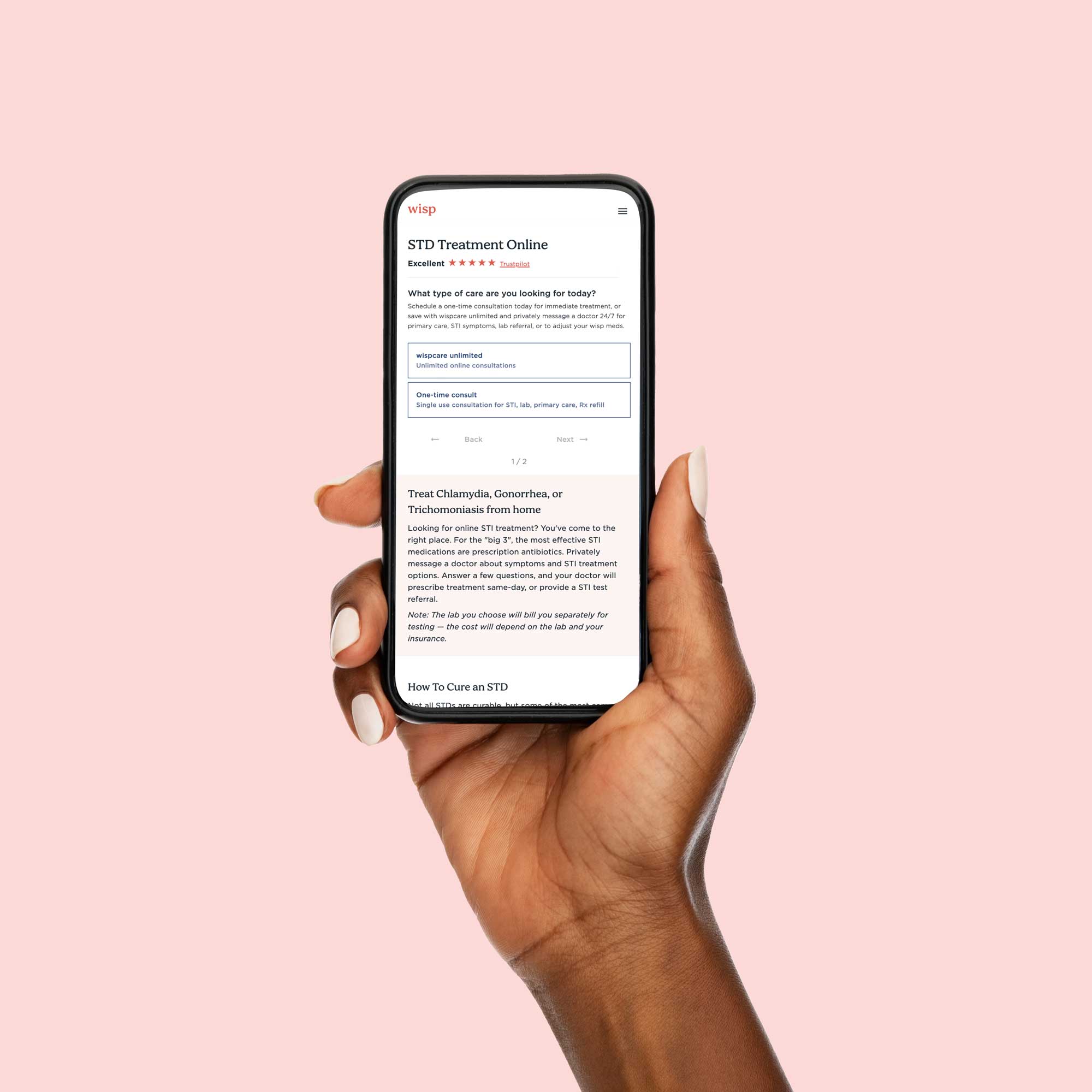
Mycoplasma Genitalium
Treatment Guide
Doxycycline + Azithromycin
Instructions
You have stated that you wish to obtain treatment with Doxycycline and Moxifloxacin for treatment of Mycoplasma genitalium (Mgen). This medication regimen is Doxycycline Hyclate 100mg tablets which you are to take one tablet by mouth twice daily for 7 days FOLLOWED by Moxifloxacin 400mg tablets one tablet by mouth daily for 7 days. This regimen is appropriate if the patient has known macrolide resistance or when macrolide resistance testing is not available. For patients who are known macrolide sensitive, the regimen is Doxycycline Hyclate 100mg tablets which you are to take one tablet by mouth twice daily for 7 days FOLLOWED by Azithromycin 500mg two tablets by mouth all at once on day 1, then one tablet once daily for days 2 through 4.
This treatment will control the infection of this bacteria which can transmit during sexual activity with a colonized partner. Researchers are still determining whether partners can spread Mgen through oral sex. These organisms are a normal part of the urogenital system, but can cause symptoms with overgrowth. Mgen can be detected among 10-30% of patients assigned female at birth with clinical cervicitis (irritation of the cervix), 40% of patients assigned male at birth causing recurrent urethritis (irritation of the urethra), and up to 26% rectally in patients assigned male at birth compared to 3% rectally in patients assigned female at birth. Mgen can oftentimes have no symptoms, but if symptoms do occur you can experience abnormal genital discharge, burning with urination, and rectal pain and discharge. If left untreated, Mgen can cause serious and permanent health problems in people assigned female at birth including: pregnancy complications for those already pregnant including preterm delivery and spontaneous abortion and infertility.
Current data is insufficient to link Mgen to chronic complications in men, and the consequences of asymptomatic infection remain unknown.
If you were provided with a Doxycycline treatment extension, you should take 1 tablet 2 times a day for 3 days BEFORE starting your Azithromycin.
Ensure to abstain from intercourse 7 days AFTER completing treatment AND when your symptoms are gone to prevent transmission to another partner and reinfection to yourself.
Allergies
These medicines, like all medications, may cause an allergic reaction if you are allergic to similar medicines or components. If you are allergic to any of the following please do not take the medicine and call or message us or see your doctor in person.
Doxycycline
- Tetracyclines (Minocycline, Tetracycline)
Azithromycin
- Other Macrolide antibiotics (Azalide or ketolide)
- Erythromycin
- Pimozide
Conditions
We have evaluated your health history and the specific health information you provided us, however if anything changes and you develop one of these conditions, please stop taking this medicine and call or message us immediately.
Doxycycline
- Pregnancy
- Myasthenia Gravis
- Oesophagitis (inflammation of your esophagus)
Azithromycin
- Pregnancy
- History of liver problems or disease
- History of kidney problems or disease
- Bronchiolitis obliterans
- Myasthenia Gravis
- Prolonged QTc syndrome
- Heart problems including irregular heartbeats
Pregnancy and Breastfeeding
Doxycycline
Based on available data, Doxycycline is not considered acceptable or safe for use in pregnancy. This treatment should not be taken by pregnant women.
Examination of current literature indicates there is no likely harm in short term use of Doxycycline with breastfeeding as milk levels are low and absorption by the infant is inhibited by the calcium in breastmilk. As a precautionary measure prolonged (more than 21 days) or repeat courses while breastfeeding should be avoided.
Azithromycin
Drug levels of Azithromycin are low in breastmilk and are not expected to cause adverse effects in breastfed infants. Monitor the infant for possible effects on the gastrointestinal flora such as vomiting, diarrhea, candidiasis (thrush, diaper rash). Azithromycin is acceptable in nursing mothers.
Medicine, Supplements, and Food
We have evaluated the specific health information you provided us, however if you are taking any of the medicines, foods, or supplements listed below call or message us before you take the medicine. Some of these can cause dangerous interactions with the medicine we are prescribing you and we will help you evaluate that risk and decide on an appropriate treatment plan. Please ensure your chart is up to date with your current medications, allergies, and medical conditions so your provider can safely treat you as this list may not be all inclusive.
Doxycycline
- Dairy (should avoid for 2 hours after treatment)
- Antacids (should avoid for 2 hours after treatment)
- Multivitamins (should avoid for 2 hours after treatment)
- Anticoagulants (Warfarin)
- Penicillins
- Barbiturates
- Antiepileptic medications (Carbamazepine, Phenytoin)
- Isotretinoin
- Rifampin
Azithromycin
- Aluminum or Magnesium-containing antacids (Avoid 2 hours after treatment)
- Warfarin
- Ciclosporin or Tacrolimus
- Colchicine
- Medications for abnormal heart beat like: Amiodarone, Sotalol, and Digoxin
- Certain antipsychotics
Emergency Side Effects
These medicines can cause dangerous and potentially life-threatening side effects. If any of the emergency side effects listed in the manufacturer’s pamphlet or those below happen to you please stop taking the medicine and call 911 or seek immediate medical help in person.
- Sudden onset of chest pain
- Shortness of breath
- Difficulty or painful swallowing
- Severe skin rash and/or itching
- Facial or throat swelling
- Severe bloody diarrhea
- Severe pain and rapid bruising at the site of injury
- Pain, stiffness, swelling, inflammatory and/or loss of strength
- Seizures
- Tremors
- Numbness or loss of sensation or feeling in body parts
- Hallucinations
- Severe mood changes
Other Side Effects
This medicine can also cause other side effects including (this list is not all inclusive):
- Sun sensitivity (be sure to wear SPF while taking this medication)
- Skin hyperpigmentation
- Abdominal discomfort
- Diarrhea
- Vaginal yeast infections
- Nausea and vomiting
- Headache
- Dizziness and vertigo
- Insomnia
- Fatigue
Risks
Accurate Information
We have evaluated your health history and your specific health information you provided and determined it is safe to proceed with this treatment at this time. If your health history changes including diagnoses or medications please message or call us before you take the medicine to ensure it's safe to proceed. Some medications and conditions can cause dangerous interactions with the medicine we are prescribing and we will help you evaluate that risk and decide on an appropriate treatment plan.
Treatment Failure
This treatment is not guaranteed to be effective. It may not work or may only partially resolve the condition for which you are seeking treatment. If the treatment is not working, or if you are experiencing new or worsening symptoms, give us a call or message us anytime. If it is an emergency, call 911 or seek immediate medical help in person. You may need to seek alternative treatment such as those listed below or in the follow up plan.
Misdiagnosis or Delayed Diagnosis
Through telehealth, there is also a risk that we misdiagnose or fail to diagnose conditions that you may have which could affect our recommendation for treatment. This risk exists with a doctor in person as well but they may have additional resources to aid their evaluation. We use evidence-based practice and guidelines as well as clinical decision-making to minimize these risks.
Accepting or Declining Our Recommendation
We have based our recommendation on your specific case and medical guidelines, but there may be alternative treatments or strategies that may be helpful to you. Some may be more or less effective than what we provide. Some treatments may require an in-person exam or procedure which we can’t provide. Message us or talk to your doctor in person to discuss alternative treatments.
Share with Your In-Person Healthcare Team
You can access your records anytime. We strongly recommend that you update your in-person doctor, pharmacist, and the rest of your healthcare team to let them know about any new medicines you are taking or other changes in your health.
You can also ask us questions anytime and we are happy to help you share any information about your health with your in-person healthcare team.

Mycoplasma Genitalium (Mgen) Treatment
$39
Get same-day prescription treatment for Mycoplasma genitalium and skip the visit to urgent care.

Levonorgestrel (Generic PLAN B)
Starting at $12.50
Take Levonorgestrel as soon as possible but within 72 hours (3 days) of unprotected intercourse or contraceptive failure. Delivery only - order ahead of time!

